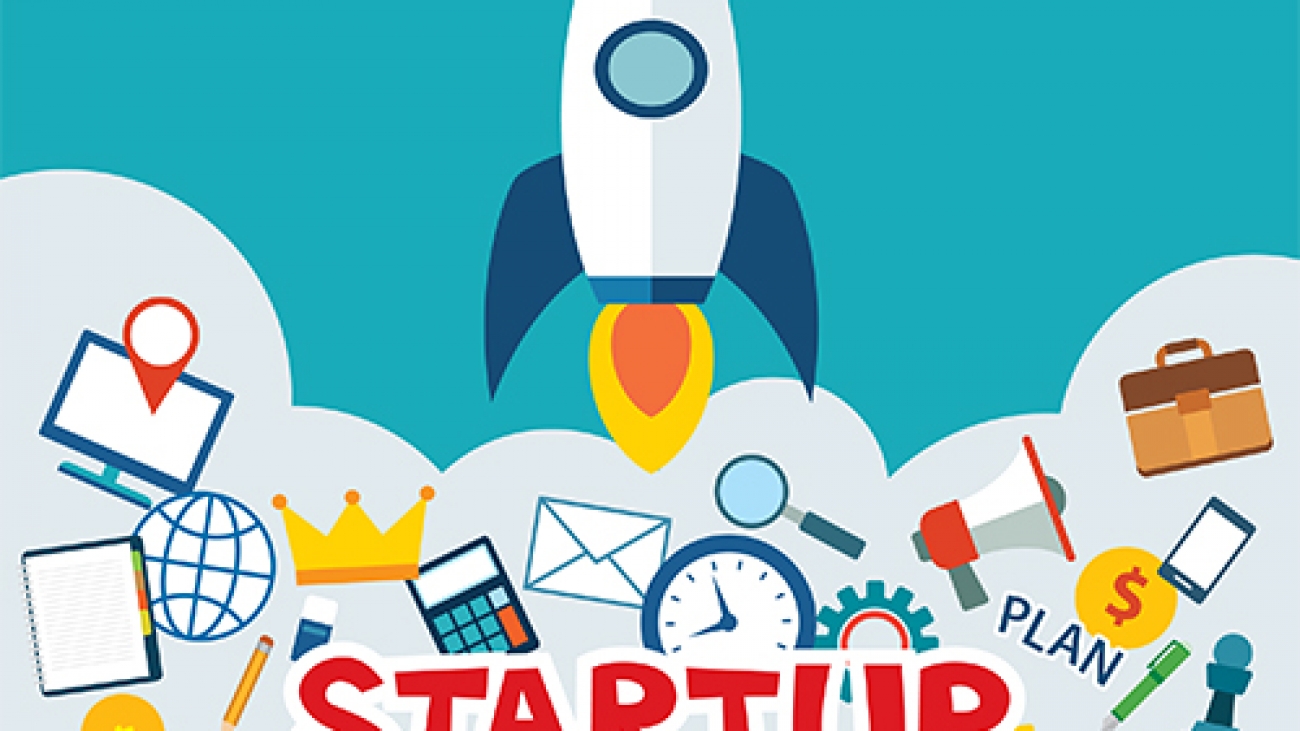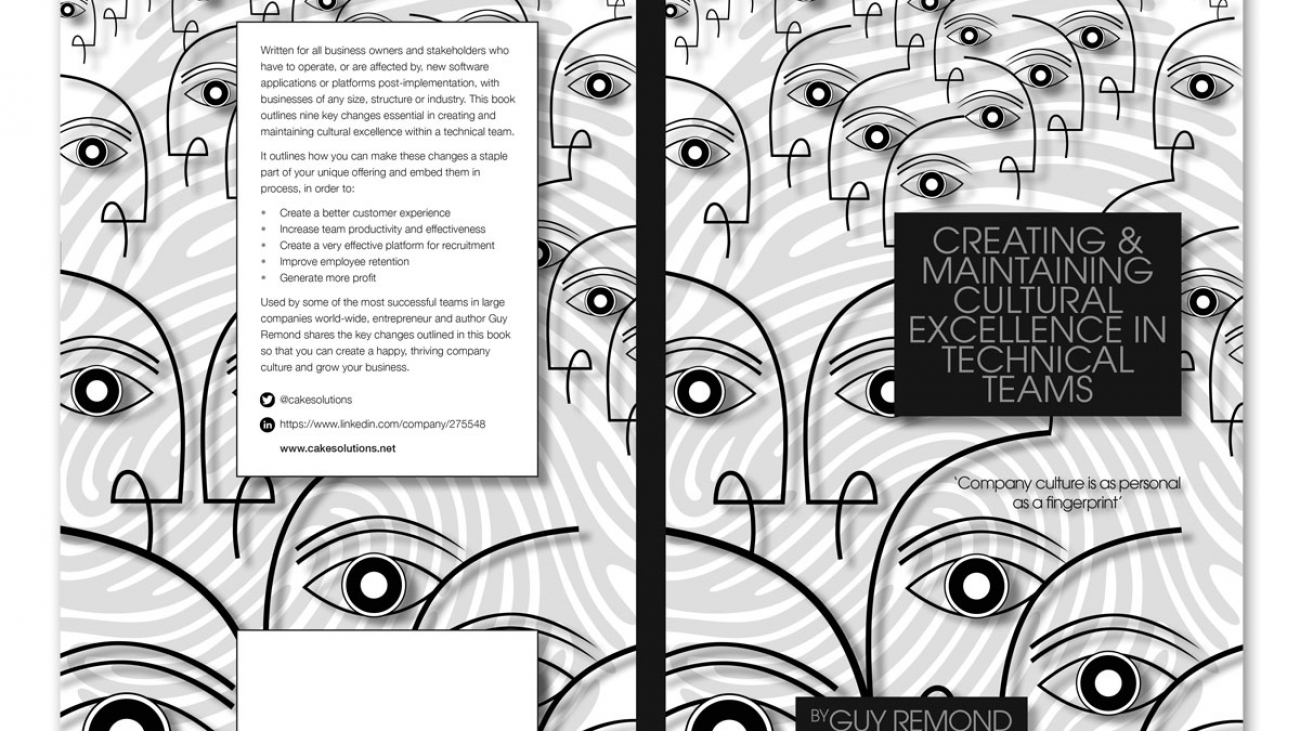Introduction To This Blog
I’d like to start by introducing myself officially: my name is Guy Remond, and I’m passionate about innovation, entrepreneurs and high-growth businesses.

Where I’ve come from
I’m the former CEO of a company called Cake Solutions, which is based in Manchester with operations in London and New York. In 2017, Cake was acquired by a large American video streaming organisation.
I continued to work with them for two years following the acquisition. It was a great company to work for, but during that time I realised that the corporate world isn’t one that I thrive in. I love being in entrepreneurial environments. That was when I left the corporate world behind to give myself time to think about what I wanted to do next and how I wanted to spend the next 10 to 15 years of my life.
At this stage, I was already a co-founder of another company – thestartupfactory.tech – which was spun out of Cake Solutions but wasn’t part of the acquisition. thestartupfactory.tech works with tech product startups in the north-west of England, particularly Manchester. We help young entrepreneurs who have a tech startup product idea in whatever way they need. That might mean we help them engineer their product if that’s what they need help with. But we also offer other services, such as a financial data directory service, CTO as a service, business strategy as a service, and even investment strategy as a service.
The whole idea behind thestartupfactory.tech is to help entrepreneurs where they have gaps in their knowledge, and where they need a little bit more support, but primarily, we help them build a tech product. In exchange for our support, we take some cash, and we also take a small amount of equity in that company. We’ll work with them until they’ve got a minimum viable product (MVP). That could be a 1.0 version of that piece of software, for example.
So, I was already involved with this existing company that was born out of Cake Solutions, where I work as a non-exec investor and a co-founder.
In fact, everything that I’m involved in now has been made possible by my time with Cake Solutions.
Choosing my new direction
One of the things that I realised was that I didn’t just want to work for one company. Although I had a few ideas about setting up a new company, I didn’t want to jump straight back into it. I wanted to work with different people and different companies, in different capacities. I might be a co-founder of some, the owner of others and an investor or advisor in others.
This is the point I’m at now. I work with a number of companies that are generally looking for high growth, because that’s something that we did reasonably well at Cake and something I feel I can help most companies with. Not all of them are tech product companies, some are in finance and marketing, for example. I’m now spending my time working as a board advisor for a few hours a week on each of those companies, which still leaves me with some time. That’s allowing me to work on two other projects at the moment, one of which is a technical product and the other of which is focusing on funding for high-growth companies. Neither of which I can talk a lot about at the moment, but watch this space!
One of the reasons why working with multiple companies appeals to me is that it allows me to tackle a lot of different issues and take on new challenges I haven’t dealt with before. It means I learn more and, in all honesty, it gives me a degree of flexibility with my life as well.
I’m not committed to spending every single day in an office, or even working remotely. I can be a lot more flexible and decide how to spend my time and schedule things around my life. This allows me to have more freedom, which is really important. I’ll talk more about that freedom in a future blog, but essentially I’m using it not only for business, but also for my personal life. This change in direction is giving me time to spend with my family. If you’re not careful, you can neglect the personal side of your life when you go all in on one company. As the leader, you have a responsibility and a commitment to the company and in particular the people that work for that company. Whereas if I’m working with a number of companies, that responsibility doesn’t fall solely on my shoulders.
Instead, I’m helping each company’s leadership team, and the entrepreneur in particular, to build their company. It feels like a noble pursuit, but equally one that can potentially be very rewarding as well. In all the companies I work with, I’m the co-owner, an investor or a founder, but it’s important to point out that this isn’t about money. It’s about achieving and I want to carry on achieving in my life.
What to expect from this blog
I want my blog to be a space where I can share my personal experience. My blogs will come in different forms – there will be opinion blogs, advice blogs and the occasional ad-hoc blog about current events. One thing they’ll all have in common is that they’ll be based on my personal experiences, both good and bad.
I know this won’t be to everyone’s taste, but I hope that I can help other entrepreneurs as they navigate their journey. I’ve been there, done that and got the T-shirt, and hopefully some of what you read on my blog will help you to avoid some of the mistakes I’ve made in the past.
I’ve spent much of the last 30 years working in the technical world, and even though I’m not an engineer (my brain isn’t wired that way), I’m definitely a geek. My focus, therefore, hasn’t been on the engineering side, but on the commercial side of this technical world. I’ve spent 20 years running my own business. I’ve been in private practice, running another business as a general manager rather than the owner. Much of the experience I’ve gained is transferable across sectors.
As a result my blogs won’t be particularly focused on the technical world, instead they will focus on my experience in running commercial entities. Hopefully this will allow me to help more companies and entrepreneurs, rather than just those in the technical world.
If you’re wondering why I’ve chosen a blog to do this, as opposed to another format, the reason is simple and comes from my time with Cake Solutions. One of the things we did successfully at Cake was to encourage the team there to build their own personal brands. It’s something I believe is really important, and I’ll be writing a future blog around building personal branding and how that can define a marketing strategy.
Why is building a personal brand so important? Put simply, people who build their personal brand also build the brand of the company that they’re working with by association. It’s a practice that I’ve long been an advocate of and I want to practice what I preach. I’m intending to build my personal brand now not only to help other people, but also to help the companies that I’m working with.
I’m already getting a huge amount of exposure in the startup world through my involvement with thestartupfactory.tech. Some of what I cover in these blogs will be startup based, taking examples not only from when I started my company, but also from the other companies I’ve worked with.
This knowledge can help you, as an entrepreneur, avoid some of the mistakes I’ve made along the way and help you move into the high-growth phase of your business more quickly. At Cake, we went through a five to six year period where we grew pretty much every parameter in the business by ten times, or in some cases considerably more. That’s given me a lot of experience of taking a company through a high-growth period, from how you finance it and how you achieve the extra sales, to how you build a team around you that supplements your unique ability and allows you to focus on the stuff that you’re really good at to drive the business forward.
My blog will help businesses both in the startup stage and the high-growth stage. I’ll also be talking about acquisitions, and sharing what I learned from Cake’s acquisition. Having been through an acquisition, I can tell you it’s an emotional rollercoaster. This is a topic I’ll cover in more detail in a future blog, but the point is my blog can help you whatever stage you’re at in your entrepreneurial journey, whether you’re just starting out with little more than an idea and a lot of enthusiasm, or are coming to the end of your journey with a particular business.
How do you find the time?
One of the big barriers people have to writing blogs is making the time to put pen to paper, so to speak. I’m involved in a number of projects and, if I’m completely honest, if it was left solely to me then I wouldn’t get round to producing blogs on a regular basis.
But that’s why I’m working with Write Business Results. They’re helping me produce my blogs and it’s a service I find very useful, because it allows me to focus my time on actually building these various businesses and helping other entrepreneurs. This isn’t the first time I’ve used Write Business Results either. They have previously ghost written a book for me and are in the process of writing a second book for me, as well as a book for one of the companies I’ve set up.
The point is that they focus on what they’re really good at, which is content generation, whether it be long books, short books, or blogs. As I said earlier, I like to practice what I preach, but it’s also okay to get help in areas that you either lack the expertise or the time to focus on fully.
So, back to my blog. Everything you read here is based on my personal experience. It isn’t theory; it’s the things I’ve seen, done and experienced on my entrepreneurial journey. It will cover the good, the bad and the ugly of owning and running a business. I’ll talk about the full lifecycle of a company, from coming up with an idea to finally letting your baby go out into the world. Owning and running a business can be an emotional journey and I can’t wait to share what I’ve learned with you.




